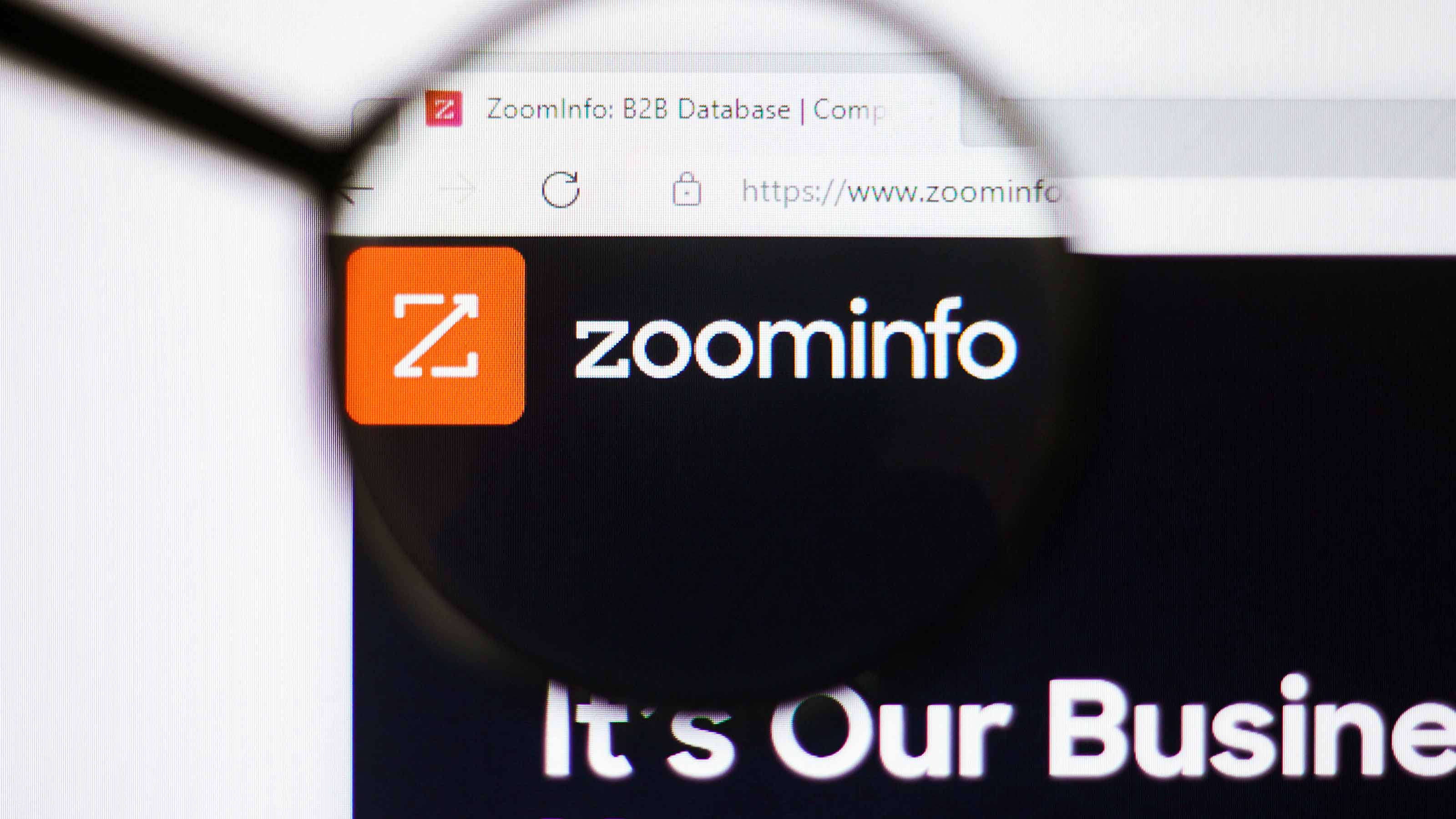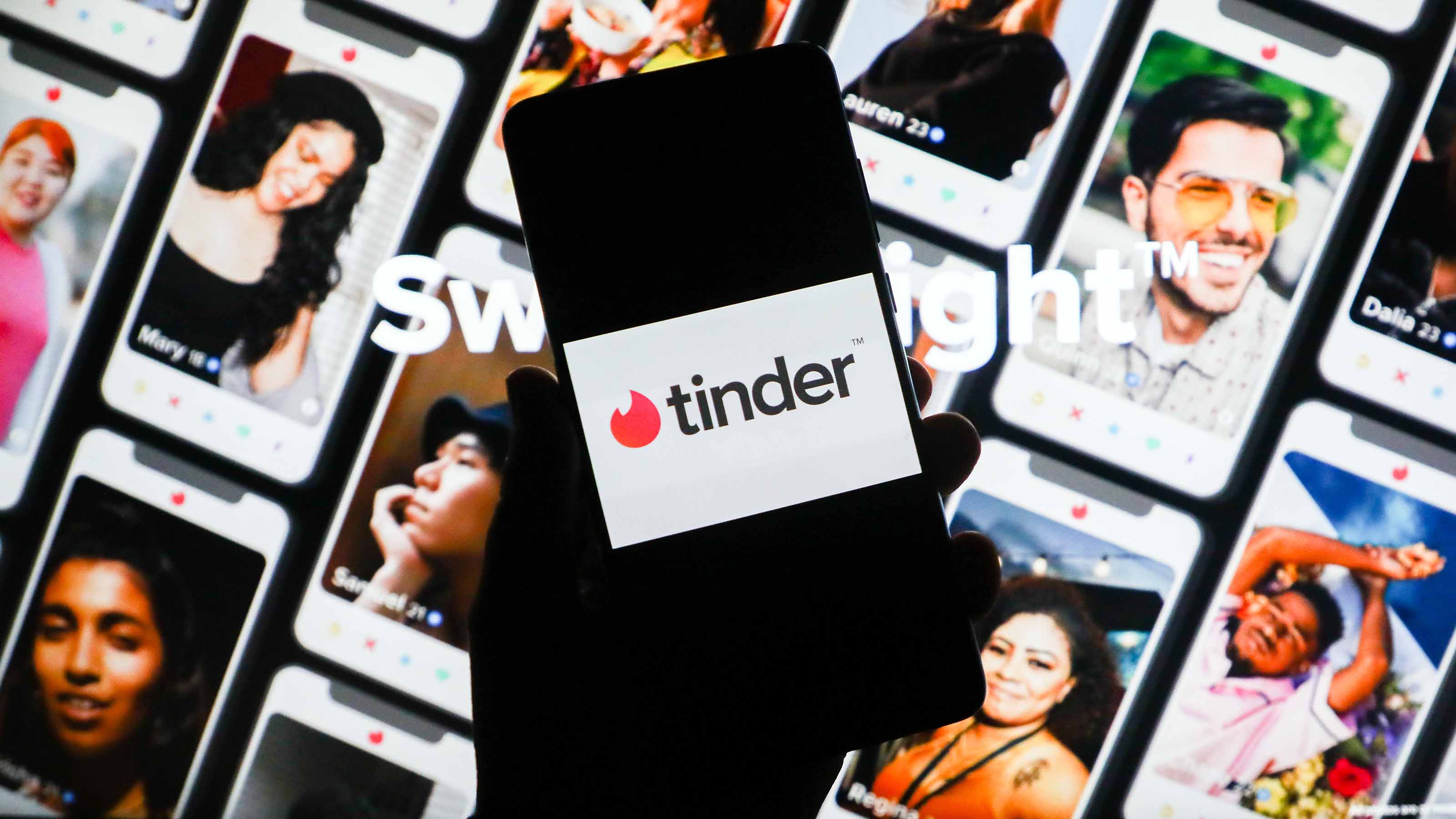Best Communication Services Stocks to Buy Now
Despite continued macro headwinds, pockets of opportunity remain among the best communication services stocks.


Profit and prosper with the best of Kiplinger's advice on investing, taxes, retirement, personal finance and much more. Delivered daily. Enter your email in the box and click Sign Me Up.
You are now subscribed
Your newsletter sign-up was successful
Want to add more newsletters?

Delivered daily
Kiplinger Today
Profit and prosper with the best of Kiplinger's advice on investing, taxes, retirement, personal finance and much more delivered daily. Smart money moves start here.

Sent five days a week
Kiplinger A Step Ahead
Get practical help to make better financial decisions in your everyday life, from spending to savings on top deals.

Delivered daily
Kiplinger Closing Bell
Get today's biggest financial and investing headlines delivered to your inbox every day the U.S. stock market is open.

Sent twice a week
Kiplinger Adviser Intel
Financial pros across the country share best practices and fresh tactics to preserve and grow your wealth.

Delivered weekly
Kiplinger Tax Tips
Trim your federal and state tax bills with practical tax-planning and tax-cutting strategies.

Sent twice a week
Kiplinger Retirement Tips
Your twice-a-week guide to planning and enjoying a financially secure and richly rewarding retirement

Sent bimonthly.
Kiplinger Adviser Angle
Insights for advisers, wealth managers and other financial professionals.

Sent twice a week
Kiplinger Investing Weekly
Your twice-a-week roundup of promising stocks, funds, companies and industries you should consider, ones you should avoid, and why.

Sent weekly for six weeks
Kiplinger Invest for Retirement
Your step-by-step six-part series on how to invest for retirement, from devising a successful strategy to exactly which investments to choose.
Historically, communication services is a robust sector with resilient fundamentals. This diverse segment of the market includes companies involved in advertising, broadcasting, internet media services, publishing, entertainment and mobile telecom services. The best communication services stocks range from mature operators that have been around for decades and pay attractive dividends to early stage growth startups, which are years away from showing profits.
This sector, like so many others, sold off last year alongside the broader market. And while many communication services stocks have shown strength so far in 2023, there are still a few concerns clouding the near-term outlook.
For instance, recession worries have many companies cutting back on advertising spending, which could affect some of the big-name players in this space. Also, some of the largest companies in the sector are falling under the watchful eye of bipartisan regulators. Antitrust investigations could soon become a thing for the world's largest social and communications companies.
But there are "pockets of opportunity," writes Matthew Drukker, portfolio manager at Fidelity, including among streaming platforms and broadband/wireless providers. "Companies that can cut costs and maintain solid balance sheets may have the best long-term prospects to come out of a downturn in a stronger position," Drukker adds.
With that in mind, here are nine of the best communication services stocks to buy now. With a handful of household names and even some smaller opportunities making this list, communications is definitely one sector that shouldn't be overlooked by any investors with a long-term outlook.
Data is as of March 14. Dividend yields are calculated by annualizing the most recent payout and dividing by the share price. Analysts' average price targets courtesy of S&P Global Market Intelligence.

Verizon Communications
- Market value: $154.9 billion
- Dividend yield: 7.1%
- Analysts' average price target: $45.62 (23.7% implied upside)
Last year, Verizon Communications (VZ, $36.88) hit a rough patch as subscriber numbers flatlined and the company had to fend off tough rivals like AT&T (T) and T-Mobile (TMUS). The result was that – during 2022 – Verizon's stock price dropped from a February high in the mid-$50s to an October low in the mid-$30s.
But it looks like things are getting back on track. In the latest quarter, Verizon reported a 217,000 increase in postpaid connections. These types of subscribers are critical because they tend to be more stable and have higher margins.
There are some other catalysts for the Dow stock. With 5G mostly built out, capital expenditures are expected to decline to $18.25 billion to $19.25 billion this year, compared to $23.1 billion for the prior year. For 2024, the capex forecast is for $17 billion.
Another boost should come from the synergies from the massive Verizon platform. The company is poised to benefit from the trend of bundling streaming services. Verizon's +play platform, which helps customers better manage streaming subscriptions, has offerings like Netflix (NFLX), Disney Plus, and HBO Max. There is also a revenue split for this.
Given Verizon's longer-term technical struggles, the valuation is still at an attractive 7.8 times forward earnings. VZ is also one of the best communication services stocks for income investors (and one of the best dividend stocks period), yielding 7.1% at present.

Zillow Group
- Market value: $9.4 billion
- Dividend yield: N/A
- Analysts' average price target: $47.33 (17.0% implied upside)
Even though interest rates may be close to a peak, they are likely to remain fairly high for the foreseeable future. The Federal Reserve wants to make sure it gets inflation under control.
But a high interest rate environment has been painful for the real estate market. Just look at Zillow Group (Z, $40.42). After the stock price reached a peak above $200 in early 2021, the direction has been mostly downward. Currently, Zillow trades around $40.
Yet this is an opportunity to buy one of the best communication services stocks in the digital real estate space. The company's platform averaged 198 million monthly active users (MAUs) in the fourth quarter and there are about 2.2 billion visits.
There is even an interesting AI play with Zillow. In January, the company announced a ChatGPT-like app that allows for natural language queries. According to Zillow's press release on the new service, users "can enter phrases like '$700K homes in Charlotte with a backyard' or 'open house near me with four bedrooms' directly into the Zillow search bar, rather than starting with a location and having to filter their way to the homes they want."
Z wants to become the housing super app and AI will certainly be key for this. The company also has the advantage of an extensive proprietary database, which includes data on 135 million homes.
To deal with the macro headwinds, Zillow has engaged in belt tightening. However, the company has continued to increase investments in product and technology. This is an encouraging sign, as it shows the confidence in the business and the secular trends.
As Rich Barton, co-founder and CEO of Zillow, noted in his latest shareholder letter: "We expect 60 million homes will trade hands over the next 10 years, which reflects a much more natural and healthy mover rate. And, given all the product and service innovation opportunities we see, we believe we can capture an increasing and meaningful share of those customer transactions and drive value for our customers, partners, employees, and shareholders."

Walt Disney
- Market value: $170.6 billion
- Dividend yield: N/A
- Analysts' average price target: $129.00 (38.2% implied upside)
In November, Walt Disney (DIS, $93.36) was looking shaky. The company posted a disappointing earnings report and said its streaming division lost $1.47 billion. There was also muted guidance. The share price sank 9% on the news.
Not long after, Disney's board and senior executives replaced CEO Bob Chapek with Bob Iger. It was bold and disruptive, but it looks like it was the right move.
Consider that Iger has wasted little time in making changes. He has set in motion layoffs for 7,000 jobs and will cut $5.5 billion in costs. Part of this is aimed at getting to profitability for the streaming business, but Iger is also realigning the power structure at the company, providing more control with content executives.
This could perhaps be the most impactful change. A key to Iger's success as CEO of Disney from 2005 to 2020 was his focus on producing blockbusters. He bolstered this with savvy acquisitions for Pixar Animation Studios, Lucasfilm, Marvel Entertainment and 21st Century Fox.
On Iger's first earnings call in February, he talked about sequels for popular franchises like "Frozen," "Toy Story," and "Zootopia." These should boost growth for the blue chip stock.
As a testament to Iger's plan, activist investor Nelson Peltz called off his proxy fight, saying the company has a solid plan. "Now they've got to execute," Peltz added.
True, now is the time to follow through. But Iger has demonstrated he can successfully lead Disney – and this should be good news for investors seeking out the best communication services stocks.

TechTarget
- Market value: $981.1 million
- Dividend yield: N/A
- Analysts' average price target: $46.22 (35.0% implied upside)
Founded at the peak of the dot-com boom in the late 1990s, TechTarget (TTGT, $34.22) is a leading platform for content and marketing tools for the technology industry. It has over 150 websites that cover topics like networking, storage, cybersecurity, cloud, DevOps and virtualization.
Unfortunately, the business has suffered because of the problems in the IT world. With sluggish growth and layoffs, there have been cutbacks to marketing budgets. For 2023, TechTarget forecasts a decline in revenues of 11% to 14%.
But the company has strong competitive advantages. It has a user base of 30 million and 95% of the traffic is unpaid. And consider that there are more than 1.2 million page one rankings on Google.
The company is also building useful tools that should help boost growth. One is the Priority Engine, which leverages TechTarget's rich database to improve conversations for leads. Then there is the content enablement segment. This is a comprehensive program that helps validate market opportunities, test messaging, create buyer personas and develop competitive analysis.
Even with the expected fall-off on the top-line for this year, TechTarget is still expected to have an attractive EBITDA (earnings before interest, taxes, depreciation and amortization) margin of about 35% and net income of $16.2 million to $23.2 million. This is partly due to an asset-light business model. In fact, for the past 19 years, the company has generated positive free cash flows.

The Trade Desk
- Market value: $27.7 billion
- Dividend yield: N/A
- Analysts' average price target: $67.41 (19.2% implied upside)
The Trade Desk (TTD, $56.53) operates a cloud-based ad buying platform that allows for campaigns across display, video, audio, mobile, social and CTV (connected TV).
Unfortunately, the industry has been under pressure, but The Trade Desk has been able to continue to show robust growth. In the latest quarter, revenues jumped by 24% year-over-year to $491 million and adjusted EBITDA came to $245 million, up 27.6%. By comparison, the company's large competitors were posting drops on the top line.
What's the difference? A major factor for the growth is TTD's AI platform, Koa.This sophisticated technology allows granular profiling of audiences, and is based on processing more than 600 billion queries per day. From all this, a marketer can get the right insights to build effective campaigns.
In the meantime, The Trade Desk is benefiting from the secular trend of CTV. This allows for personalized ad campaigns. But this requires state-of-the-art technologies like Koa.
On The Trade Desk's latest earnings call, founder and CEO Jeff Green said, "The shift from linear TV to CTV continues to accelerate, and I predict that, at some point in the near future, we will reach a precipitous tipping point. It won't be a long, gradual shift to CTV. It will be an acceleration and then a full-on shift."

Electronic Arts
- Market value: $30.6 billion
- Dividend yield: 0.7%
- Analysts' average price target: $133.67 (19.9% implied upside)
The gaming industry can definitely be choppy. A game can easily flop or fade. Then there are the inevitable delays.
This is why it's a good idea to focus on game publishers that have a set of durable franchises. They can ride out the temporary problems – and ultimately provide investors a way to benefit from the continued growth of the industry.
Of course, Electronic Arts (EA, $111.48) fits the bill. Its franchises include FIFA, Madden, UFC, Star Wars and Sims. There is also a massive player network, which is at 650 million.
It's true that there were problems in the recent quarter. EA pulled the Apex Legends Mobile game. Even though it was the game of the year for 2022 for Apple and Google app stores, it was not enough. This does show how difficult the mobile gaming segment can be.
Another problem was that EA delayed the launch of its Star Wars Jedi: Survivor console game. Instead of being released in mid-March, it will be for late April. Still, the game has a good chance of being a hit and a boost for growth.
In other words, EA's recent issues appear to be temporary, while its long-term prospects look bright, especially as other games are launched this year. For investors, this allows them the chance to get one of Wall Street's best communication services stocks at a discount.

Twilio
- Market value: $11.8 billion
- Dividend yield: N/A
- Analysts' average price target: $83.33 (32.2% implied upside)
Founded in 2008, Twilio (TWLO, $62.99) has been a strong innovator. The company started as a platform that allowed developers to include communication services – like voice, messaging and email – into their apps. It then leveraged this expertise into creating solutions for the contact center. This was then followed up with technologies for sales reps. And then there was a move into the customer data market, which came through the acquisition of Segment.
While all this has created a large company, Twilio has had its problems. The disparate businesses have become more difficult to manage. The headcount also got bloated.
But co-founder and CEO Jeff Lawson has taken swift actions, most recently dividing his organization into two groups: Twilio Communications and Twilio Data & Applications. This has resulted in a shakeup of leadership ranks.
There have also been significant layoffs, with 26% of the workforce let go in recent months. The company also eliminated many employee perks – including its sabbatical program – and reduced its real estate footprint.
Now, the good news is that Twilio continues to grow. In the fourth quarter, revenues were up 22% year-over-year.
But given the state of the company – in which revenues are at over $1 billion per quarter – there is a need to focus on profitability. All in all, it seems Lawson's plan is spot-on for this.

ZoomInfo Technologies
- Market value: $11.3 billion
- Dividend yield: N/A
- Analysts' average price target: $34.52 (61.6% implied upside)
ZoomInfo Technologies (ZI, $21.36) is a provider of market intelligence for sales, marketing, operations and recruiting. For example, the platform can help provide an account executive a 360-degree view of a prospect, which should help close sales.
The databases are massive. They have over 220 million professional profiles and more than 100 million companies. There are roughly 1.5 billion updates daily.
All this has been crucial for ZoomInfo's AI efforts. Some of the features include predictive modeling for customer personalization, targeted messaging, web form optimization and conversation intelligence.
In early 2023, ZoomInfo announced it will launch a ChatGPT-type language system for its products. The company noted in a press release: "this cutting-edge technology will transform the way sales and marketing teams find and connect with their ideal customers, cutting prospecting time and driving more efficient results for go-to-market (GTM) teams."
While the economic slowdown has weighed on ZI's business, the company has continued to grow, with revenues up 36% in the latest quarter. It also has a lean operating structure, with impressive free cash flows of $122.4 million.
To gin up growth, ZoomInfo has been investing heavily in its enterprise segment. And there is lots of runway for one of Wall Street's best communication services stocks. The company estimates that its addressable market opportunity is at about $100 billion.

Match Group
- Market value: $10.3 billion
- Dividend yield: N/A
- Analysts' average price target: $63.14 (71.9% implied upside)
Like many other digital companies, Match Group (MTCH, $36.74) stock got off to a strong start in 2023. But the enthusiasm soon fizzled. The reason? A weak earnings report. The company reported a 2% year-over-year drop in revenues to $786 million and a 54% fall in operating income to $107 million. There was also weak guidance for the first half of this year.
But investors should not throw in the towel on Match stock. If anything, this is an opportunity to get a better valuation on one of the best communication services stocks.
One catalyst for future growth is the changes CEO Bernard Kim has been making to the Tinder app. A key to this has been a slew of innovative features, as well as a new marketing campaign, which should help accelerate the growth.
In the meantime, there have been important changes to the Hinge app, such as boosting monetization by adding subscription tiers. There is also the push into foreign markets, including Asia.
Again, the near term is expected to be challenging, and restructuring efforts will take some time to get results that move the needle. But this should set Match up for renewed growth in the second half of the year.
Profit and prosper with the best of Kiplinger's advice on investing, taxes, retirement, personal finance and much more. Delivered daily. Enter your email in the box and click Sign Me Up.

Tom Taulli has been developing software since the 1980s when he was in high school. He sold his applications to a variety of publications. In college, he started his first company, which focused on the development of e-learning systems. He would go on to create other companies as well, including Hypermart.net that was sold to InfoSpace in 1996. Along the way, Tom has written columns for online publications such as Bloomberg, Forbes, Barron's and Kiplinger. He has also written a variety of books, including Artificial Intelligence Basics: A Non-Technical Introduction. He can be reached on Twitter at @ttaulli.
-
 Nasdaq Leads a Rocky Risk-On Rally: Stock Market Today
Nasdaq Leads a Rocky Risk-On Rally: Stock Market TodayAnother worrying bout of late-session weakness couldn't take down the main equity indexes on Wednesday.
-
 Quiz: Do You Know How to Avoid the "Medigap Trap?"
Quiz: Do You Know How to Avoid the "Medigap Trap?"Quiz Test your basic knowledge of the "Medigap Trap" in our quick quiz.
-
 5 Top Tax-Efficient Mutual Funds for Smarter Investing
5 Top Tax-Efficient Mutual Funds for Smarter InvestingMutual funds are many things, but "tax-friendly" usually isn't one of them. These are the exceptions.
-
 Fed Vibes Lift Stocks, Dow Up 515 Points: Stock Market Today
Fed Vibes Lift Stocks, Dow Up 515 Points: Stock Market TodayIncoming economic data, including the January jobs report, has been delayed again by another federal government shutdown.
-
 Dow Dives 797 Points as Government Opens: Stock Market Today
Dow Dives 797 Points as Government Opens: Stock Market TodayThe process of pricing and re-pricing realities old and new never stops, and next week promises to be at least as exciting as this week.
-
 Investors Take Stock of Shutdown Talk: Stock Market Today
Investors Take Stock of Shutdown Talk: Stock Market TodayWhether we'll have a Jobs Friday this week depends on if we have a government shutdown in Washington.
-
 What Tariffs Mean for Your Sector Exposure
What Tariffs Mean for Your Sector ExposureNew, higher and changing tariffs will ripple through the economy and into share prices for many quarters to come.
-
 Stocks Rally on Apple Strength: Stock Market Today
Stocks Rally on Apple Strength: Stock Market TodayThe iPhone maker will boost its U.S. investment by $100 billion, which sent the Dow Jones stock soaring.
-
 Stock Market Today: S&P 500 Hits High After Verizon Earnings
Stock Market Today: S&P 500 Hits High After Verizon EarningsThe Nasdaq also notched a new high on Monday, while the Dow finished with a marginal loss.
-
 Stock Market Today: Stocks Rise Despite Stagflation Risk
Stock Market Today: Stocks Rise Despite Stagflation RiskThe business of business continues apace on continuing hope for reduced trade-related uncertainty.
-
 What Wall Street's CEOs Are Saying About Trump's Tariffs
What Wall Street's CEOs Are Saying About Trump's TariffsWe're in the thick of earnings season, and corporate America has plenty to say about the Trump administration's trade policy.
